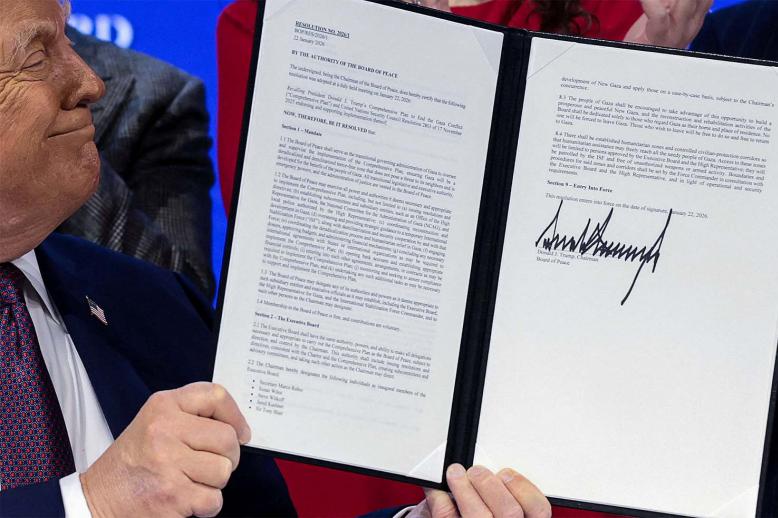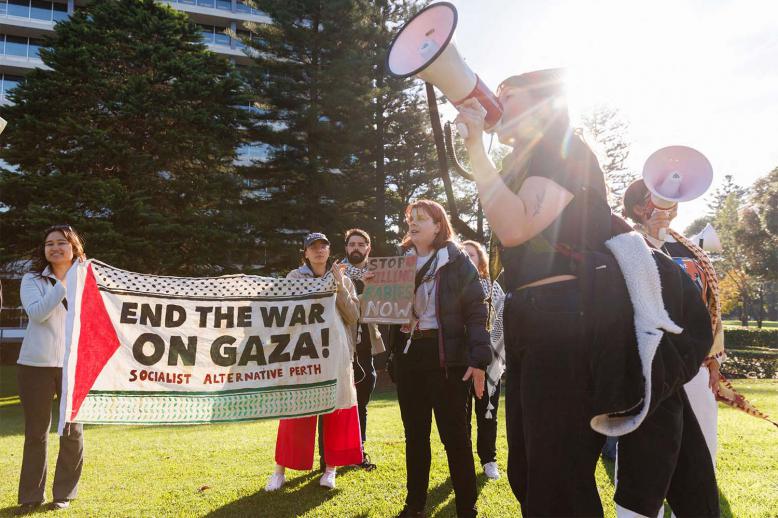Protests are reviving the concept of the state in Iraq
Thanks to the peaceful protest operations, there are now many major changes taking place in Iraq and will reshape the future of this country, as many analysts expect.
There is a distinct pattern of great struggle within the Iraqi sociopolitical context. This kind of scramble is no longer concentrated in the religious, ethnic, or sectarian matters through controversial talking about Shiite, Sunni, Araba, and Kurds. Rather, it has changed to become a heated debate between two models: the state in front of the non-state, and the community in the face of the authority.
In the heart of this conflict, vital and decisive transformations are now being increased. There is an aware opinion saying that the external player has lost its efficacy to control the developments in the Iraqi scene, and it does not have any ability to change the destiny of the demonstrations. Instead, the protesters are presently gambling on the local factors and incentives to produce the reform they are aspiring to. They believe that there is a consensus between them and the religious leadership in Najaf, and this will help them to sustain the momentum of their social movement.
This new trend in the Iraqi domain will have a positive impact on the political process. The protesters assume that there is no point in repeating the experience of 2003, when the state was completely collapsed, leaving behind a tremendous vacuum that hit the official institutions and damaged the whole Iraqis. Another perspective is looming and affirming that Iraq can move forward through enhancing the advantages of this period to rebuild the trust between the community and the political life.
The protest movement does not trust in the political forces that are ready to do every possible thing for imposing their candidate for prime minister, even if he does not meet the demands and criteria set by the protesters. People think that such parties will agree on an incompetent figure who will not be able to pave the way for the early election. Therefore, the youth of the Tahrir Square in Baghdad insist on their refusal of this plan and are trying to force the parliament, which is accused of being a puppet in the hands of politicians, to listen to their word.
In the previous days, another problem, leading to complicate the political scene, happened when Barham Salih, the Iraqi president, disallowed to send the name of the candidate of the greater block to the parliament for voting on him. In his letter to the legislative power, he said that he made a constitutional breach as the constitution does not give him the right to reject this mechanism. However, he confirmed that he is responsible for the community security, and he cannot support this nomination as he fears the reaction of the protest street.
Both protesters and Sayid Ali al-Sistani maintain that the new government must work on restoring the prestige of the state, calming down the situation, and holding an early election away from the hegemony of money and weapons. In return, political parties are still emphasizing on choosing a weak figure who is unable to fulfill these aspirations. This means there is a real dispute between those who want to rebuild the state and those who want to control it for their interests.
The protests have presently entered into the center of the regional and international interactions taking place on the Iraqi ground. The latest conflict that occurred between some factions of the popular mobilization forces (PMF) and the USA has turned into a source of polarization for the followers of these Iraqi forces to be gathered in front of the American embassy in Baghdad.
They are now attempting to maintain their presence in some geographical places near the green zone, where the embassy is located. They want to put pressure on Washington, blamed for supporting the protests of October, to end the project of changing the current government that is backed by the PMF.
In the Iraqi street, today we have widespread accusations of treason among the followers of these opposing protests. Those who do not want well for the Iraqis say that one of these demonstrations represents the American plan to spread chaos in the Shiite cities, and the other is stigmatized as being an Iran tool to counter the desire for reform and change in Iraq.
This circumvention of truth might lead to a dangerous and direct conflict among these youth, and the civil war might escalate for any reason. They want to abort the real protests for reform the state by dragging the protesters into the arena of the Iranian-American conflict.
Among all these people protesting now in Baghdad, many activists are asserting that they must protest according to the Iraqi motives that have nothing to do with the Iranian or American interests. This confirms that there is a new equation now being shaped in the Iraqi geopolitical context. This part of the protesters, holding the Iraqi slogans that refuse to act on behalf of the external powers, has become an effective factor in determining the outcomes of the coming phase.
Many Iraqis are now betting on the performance of such protesters to restore the Iraqi sovereignty, decrease the destructive role of the foreign powers, and to establish a strong Iraq state in this geostrategically complicated region.
Diyari Salih is an Iraqi academic with a Ph.D. in Political Geography from the University of Baghdad and a Post-Doctorate in International Relations from the University of Warsaw. His research focuses on geopolitical issues in Iraq.







